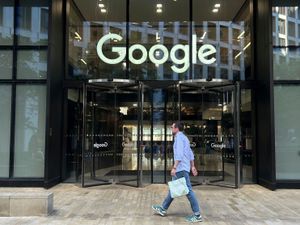Google’s digital ad network declared illegal monopoly by US judge
It comes after a separate decision that concluded Google’s namesake search engine had been illegally leveraging its dominance to stifle competition.

Google has been branded an abusive monopolist by a US judge for the second time in less than a year, this time for illegally exploiting some of its online marketing technology to boost the profits fuelling an internet empire currently worth 1.8 trillion dollars.
The ruling issued on Thursday by US district judge Leonie Brinkema in the state of Virginia comes on the heels of a separate decision in August that concluded Google’s namesake search engine has been illegally leveraging its dominance to stifle competition and innovation.
After the US Justice Department targeted Google’s ubiquitous search engine during President Donald Trump’s first administration, the same agency went after the company’s lucrative digital advertising network in 2023 during then-president Joe Biden’s ensuing administration in an attempt to undercut the power that Google has amassed since its inception in a Silicon Valley garage in 1998.
Although antitrust regulators prevailed both times, the battle is likely to continue for several more years as Google tries to overturn the two monopoly decisions in appeals while forging ahead in the new and highly lucrative technological frontier of artificial intelligence.
The next step in the latest case is a penalty phase that will likely begin late this year or early next year.
The same so-called “remedy” hearings in the search monopoly case are scheduled to begin on Monday in Washington DC, where Justice Department lawyers will try to convince US district judge Amit Mehta to impose a sweeping punishment that includes a proposed requirement for Google to sell its Chrome web browser.
Judge Brinkema’s 115-page decision centres on the marketing machine that Google has spent the past 17 years building around its search engine and other widely used products and services, including its Chrome browser, YouTube video site and digital maps.
The system was largely built around a series of acquisitions that started with Google’s 3.2 billion dollar purchase of online ad specialist DoubleClick in 2008.
US regulators approved the deals at the time they were made before realising that they had given the Mountain View, California, company a platform to manipulate the prices in an ecosystem that a wide range of websites depend on for revenue and provides a vital marketing connection to consumers.
The Justice Department lawyers argued that Google built and maintained dominant market positions in a technology trifecta used by website publishers to sell ad space on their webpages, as well as the technology that advertisers use to get their ads in front of consumers, and the ad exchanges that conduct automated auctions in fractions of a second to match buyer and seller.
Although Judge Brinkema did not rule entirely in favour of the Justice Department, she concluded Google has been abusing its power to stifle competition to the detriment of online publishers forced to rely on its ad network and pricing for revenue.
Judge Brinkema reached the decision after evaluating the evidence presented during a lengthy trial that concluded just before Thanksgiving last year.
“For over a decade, Google has tied its publisher ad server and ad exchange together through contractual policies and technological integration, which enabled the company to establish and protect its monopoly power in these two markets,” Judge Brinkema wrote.
“Google further entrenched its monopoly power by imposing anticompetitive policies on its customers and eliminating desirable product features.”
The Justice Department did not immediately comment on the decision.
In a statement, Google said it will appeal the ruling.
“We disagree with the Court’s decision regarding our publisher tools,” said Lee-Anne Mulholland, Google’s vice president of regulatory affairs.
“Publishers have many options and they choose Google because our ad tech tools are simple, affordable and effective.”
As it did in the search monopoly case, Google and its corporate parent Alphabet vehemently denied the Justice Department’s allegations.
Their lawyers argued the US government largely based its case on an antiquated concept of a market that existed a decade ago while underestimating a highly competitive market for advertising spending that includes the likes of Facebook parent Meta Platforms, Amazon, Microsoft and Comcast.





